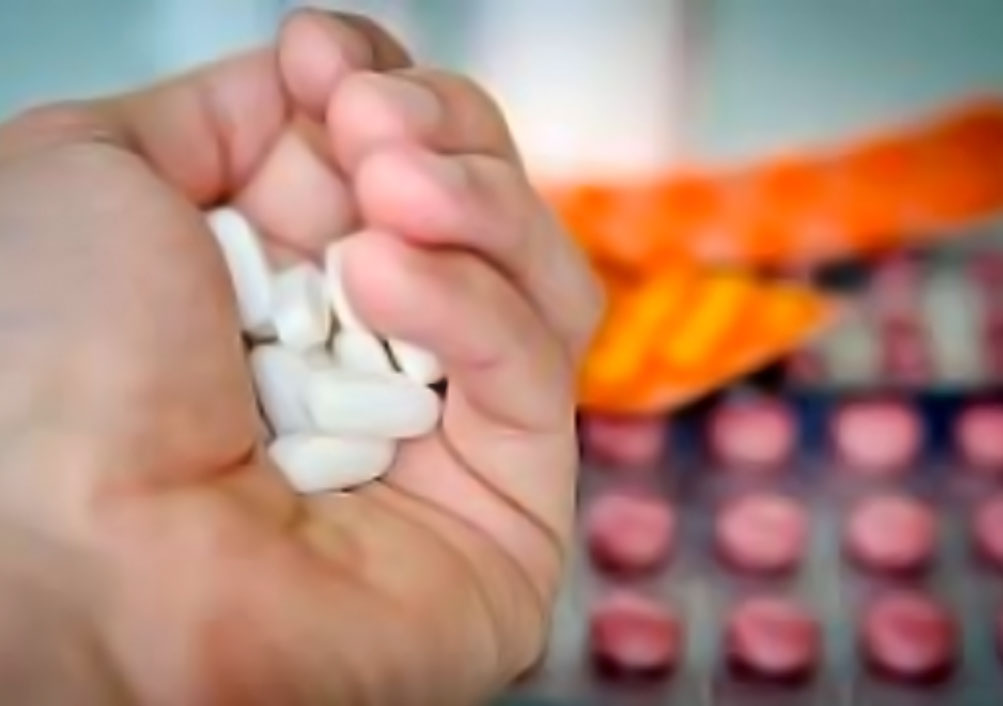P&H HC denies bail to accused involved in trade of supply of intoxicant tablets; directs Juvenile Justice Board, Sirsa, to expedite Trial

Read Order: Rakesh v. State of Haryana
LE Staff
Chandigarh, October 4, 2021: In a case pertaining to the Narcotic Drugs and Psychotropic Substances Act ,1985, the Punjab and Haryana High Court has held that the accused,who has been declared to be juvenile by the Additional Sessions Judge, Sirsa, does not deserve the relief of regular bail.
Feeling aggrieved by the order passed by the Principal Magistrate, Juvenile Justice Board, Sirsa, rejecting the application as moved by the revisionist-petitioner for seeking the relief of regular bail as well as the judgment handed down by learned Additional Sessions Judge, Sirsa, dismissing the Criminal Appeal preferred by him against the said order, the petitioner had moved this revision petition with the prayer to set aside the same and to grant him the afore-said relief.
In this matter, a criminal case was registered against the co-accused of the petitioner named Balkar Singh at Police Station Sadar, Dabwali, under Section 22 of the NDPS Act, with the allegations of his having been found in possession of 6500 Tramadol hydrochloride 100 mg, Clovedol 100-SR Tablets and during his interrogation, he had allegedly suffered a disclosure statement and in pursuance thereof, the petitioner had been arrested in this case as the alleged supplier/seller of the said Tablets to him (Balkar Singh).
It was vehemently contended from the petitioner’s side that while passing the impugned order as well as the judgment, both the Courts below did not appreciate the provisions as contained in Section 12(1) of the Juvenile Justice (Care and Protection of Children) Act, 2015 in the correct perspective and did not recorded any specific reasons as to how the case of the petitioner was covered under the proviso appended thereto and hence, the same were not legally sustainable.
The Bench of Justice Meenakshi I. Mehta observed that as regards the contention qua the implication of the petitioner on the basis of the alleged disclosure statement of his co-accused, it was worthwhile to mention that in Para 3 of the Reply filed on behalf of the respondent-State, it had been mentioned that the above-named co-accused of the petitioner had disclosed that he could identify the place as well as the person from where/whom he had purchased the said recovered intoxicant tablets and in Para 4 therein, the concerned DSP had categorically deposed that the petitioner was arrested on the basis of his identification by his said co-accused.
Moreover, the trial proceedings, as pending before the Juvenile Justice Board, are still at the nascent stage and therefore, it would be pre-mature to adjudicate upon the said contention, at this stage, while considering and deciding the prayer of the petitioner for grant of regular bail, added the Bench.
According to the Bench, the co-accused of the petitioner, besides having suffered the alleged disclosure statement, has also been stated to have identified him (petitioner) as the person from whom he had purchased the said intoxicant tablets and on the basis of his identification, the petitioner was arrested in this case
The Bench also referred to the decision of the Co-ordinate Bench in Bachan Singh @ Kala vs. State of Haryana wherein it was held “it has to be noticed that there cannot be any settled precedent in criminal cases especially in bail matters and facts of each case are different and distinct, therefore, observations made by the Court while deciding a bail cannot be taken to be settled and binding precedent by the other Courts dealt with similar matters.”
Further , as mentioned in the copy of the order passed by Additional Sessions Judge, Sirsa declaring the petitioner to be juvenile, his date of birth is September 15,2003 whereas the subject FIR was registered on January 5,2021 and he was arrested on January 9,2021 meant that at that time, the age of the petitioner was 17 years and 4 months approximately, i.e above 16 years and just about 8 months short of 18 years.
The quantity of the contraband, as allegedly recovered in the instant case, fell within the category of “commercial quantity” attracting the provisions of Section 22 (c) of the NDPS Act which provide for the punishment of rigorous imprisonment for a term which shall not be less than 10 years but which may extend to 20 years and also the fine as mentioned therein.
The Court also put forth that it was explicit that the petitioner was not at all in those tender years of age when he could be presumed to be not well aware of the commission of the alleged offence as well as its consequences. To cap it all, as mentioned in Para 8 of the Reply-cum-affidavit, he has been involved in another case of the similar nature registered at Police Station Jamsar (Rajasthan) and as deposed in Para 6 therein, the petitioner had disclosed that he, along-with his brother and four more persons, had been indulging in the trade of the supply of intoxicant tablets under the cover of a Hotel and in Para 7, it has been further mentioned that his above-said four co-accused could not be arrested till date.
Dismissing the instant revision petition, the Bench noted that in these circumstances, there is every likelihood of the petitioner, if released on bail, associating again with his said co-accused and indulging in the same trade/crime and it being so, his release would certainly defeat the ends of justice and would also expose him to moral, physical and psychological danger as well.
Sign up for our weekly newsletter to stay up to date on our product, events featured blog, special offer and all of the exciting things that take place here at Legitquest.




Add a Comment